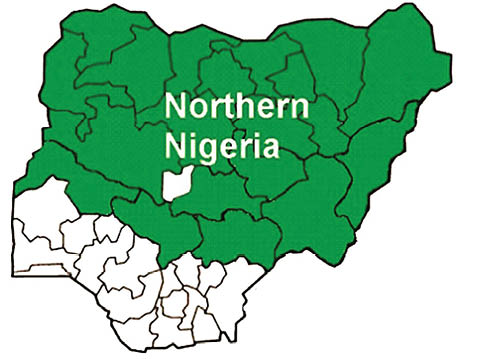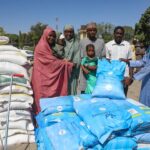In the aftermath of the calamitous and disastrously mangled #endbadgovernance protests which in early August 2024 consumed some towns and cities in Northern Nigeria, I was exposed to discussions online about the fate that may have befallen the region as a consequence. One of them in particular (issued by my brother and friend, Hussaini Abdu, PhD.) offered a distillation of some of the core drivers of this unfortunate turn of events in especially Northern Nigeria.
I am inclined to restate the same points, albeit from another, more personal angle: It is my contention that as political, economic and civil society elites of northern extraction, we (yes, many of us) have for too long pretended, ignored, overlooked or simply downplayed and/or failed to collaboratively confront and proactively stem in creative ways, the slowly germinating seeds of youth restlessness and their attendant restiveness, across huge swaths of the region. And this has been the story of the region, going back over four decades.
In the late 80s and into the early 90s, I spent a lot of time in the company of the former (and late) military governor of Northern Nigeria, Ciroman Katsina, Major General Hassan Usman Katsina, of blessed memory. At just about every private and public function that he had opportunity to speak, he would openly and loudly lament the sorry, degenerating state of parental and community leadership, and the gradual failure and erosion of family and societal values in the North. Citizens everywhere would often praise and thank him for his (then rare, near-solitary public) forthrightness about the issues as it were. Thereafter, and again and again, we all returned to our businesses as usual.
Within the same North, an insipid, vapid and outlandish culture of “maula”, is gleefully and mindlessly practiced and encouraged by a thieving rentier class of dealers masquerading as leaders in the public, private and faith sectors of the socio-economy. The inexplicable veneration and promotion by some, of a culture of begging involving hundreds of thousands of minors is common in just about every capital city and major towns in Northern Nigeria and even outside of it. Children birthed by parents who clear-eyed, have mindlessly abdicated their responsibility. It is a badge of shame and dishonour that parents would wilfully “export” innocent kids away from home with hardly a compass to sensibly navigate their way through a rough, brutish and harsh terrain, thereby rendering them as canon fodder for all manner of ills. Add to these festering maladies within the culture, the general onset of apathy to (and the deliberate, criminal divestments and wanton corruption which have weakened public) vocational and formal education. These have combined to disadvantage a rapidly expanding youth bulge, girls and boys, all over the North. A general collapse of education opportunities and standards all over Nigeria, with the North bearing the most brunt, became the bitter icing on the cake. And this was a region that had by all indicators of progression in modernity, lagged far behind its counterparts in Nigeria, long before independence in 1960.
- Break interferes with Postecoglou’s preparation for City
- Bauchi agog in honour of late Sa’adu Zungur
Today’s generation of youth, born between 25 and 35 years ago have all grown and matured in a North seemingly flailing without direction. They are witnesses mostly to violent conflicts and the rapacious pilfering by so-called political, social and religious elites of public resources. Thanks to social media, the abhorrent lifestyle of such office holders in the region and elsewhere, are daily exhibited by the opulent economic and social aggrandisement of political and faith leaders, on display in their villages, towns and cities.
Apparent incapacity fuelled by corruption of a section of men and officers in state law enforcement and security has seen them woefully come up short and/or have abused, misused and compromised their role and gotten stupendously rich in the process. In unmistakable terms, youth in the North of Nigeria are living the nightmare of a state apparatus manifestly unable to crucially combat and end banditry and curtail and punish kidnapping as a criminal enterprise.
In over two decades, a rampaging insurgency has wrecked untold havoc upon the foundations and very fabric of the North. We should be unsurprised that young people in Northern Nigeria cannot visualise and locate for themselves a visible trajectory of a thriving future of socioeconomic opportunities, and this goes back from especially 1999 to date.
I wish to say that some of the many answers and solutions to this dangerous state of affairs are right before us.
Agriculture in the North is and remains our lowest hanging fruit. Public, private and civil society actors must quickly work together to redirect and deploy the vibrant energy of our youth population to full, sustained participation in this sector. Within a space of just eight years, a sitting president of northern extraction wistfully (some would say, absent-mindedly) and inexplicably superintended over the unfortunate “democratisation” of insecurity, shamefully and shamelessly all over the region. Under his watch, rampaging insurgents and kidnapping gangs gleefully laid to waste commercial and subsistence farming, leading to acute shortages in food provisioning. Farms and farming communities had to contend with endless acts of daily, vicious terror, rendering thousands of arable farmlands to lay waste year upon year. We must quickly put heads together, figure out a way to attack this challenge, sensitise and partner with state agencies, and commence the difficult but necessary act of mobilising our young population to return in their numbers, to our first love historically, as a region.
Our villages, towns and cities are increasingly an environmental sanitation eyesore with dirt and filth and unhygienic practices in overdrive as core living habits. The serial outbreaks in many of our communities of preventable and other serious diseases and ailments, reflect the degenerate health and living conditions of majority of our compatriots in Arewa. Yet again, our teeming youth population can, and should be mobilized, trained and offered incentives in their various locations, to take up massive clean-ups of our neighbourhoods on a weekly basis. We must move to reimagine and put forth concrete and viable action steps in this regard, consciously engage with state, non-state and educational/research institutions, so as to design pathways that will ultimately convert the state of our despondent residential and commercial environments into the sustainable gold mine that they most certainly are. We have the boys and girls, who will be constituted as the vanguard for this badly needed turnaround.
Finally, our northern governors must unashamedly and immediately ask to borrow in part or wholesale, the developmental blueprint of Prof. Babagana Umara Zulum, governor of Borno State. In a short four years of his first term in office, and building on the foundations of his predecessor, he instigated a huge experiment in skills and vocational training for thousands of youths annually. Majority of these youth had on account of the Boko Haram insurgency, lost their chances at formal education, but given another few years now, Borno youth will be blazing the trail in Northern Nigeria with their globally acclaimed entrepreneurial skills sets. In late 2022, based on my first-hand insights of these and other accomplishments by the government of Borno in health, education, agriculture, trade and commerce, the time is now for every governor in the North to emulate this example and commit to skilling not less than 10,000 young people annually in various trades, crafts and entrepreneurship starter packs. The resources are there. It is doable.
We are far behind as a region. Let us step up to do something about it. I wish to charge socio-political and cultural platforms in the North, to come together and convene a platform of like-minded Arewa persons. The time is now to, step forward together and thoughtfully hash out and make concrete contributions to charting a fresh course. History beckons, yan’uwa.
Haroun Harry Audu (Marketing Communications Consultant; Public Policy Strategist; Resource Optimization Specialist & Legal Practitioner)

 Join Daily Trust WhatsApp Community For Quick Access To News and Happenings Around You.
Join Daily Trust WhatsApp Community For Quick Access To News and Happenings Around You.

